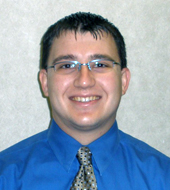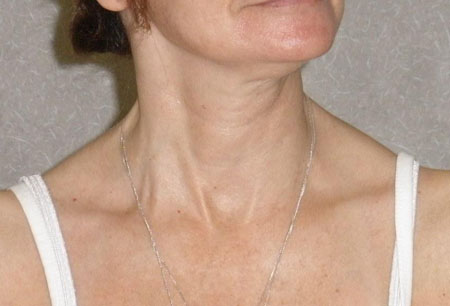Resumo
Definição
História e exame físico
Principais fatores diagnósticos
- torção ou desvio involuntário do pescoço
- dor cervical
- presença de truque sensorial
- postura anormal da cabeça
- restante do exame neurológico normal
Outros fatores diagnósticos
- tremor da cabeça
- início insidioso
- cefaleia
- hipertrofia assimétrica dos músculos do pescoço
- amplitude de movimentos (ADM) normal do pescoço (no início da evolução)
Fatores de risco
- sexo feminino
- meia idade (40 a 59 anos)
- ascendência branca
- história familiar de torcicolo adquirido
- exposição a medicamentos bloqueadores da dopamina
- história de trauma
Investigações diagnósticas
Primeiras investigações a serem solicitadas
- diagnóstico clínico
Investigações a serem consideradas
- radiografias cervicais
- TC ou RNM cranioencefálica
- TC ou RNM do pescoço
- gene DYT-1
- ceruloplasmina sérica, excreção urinária de cobre
- eletromiografia
Algoritmo de tratamento
indolor ou sem comprometimento funcional
com comprometimento funcional, dor ou diminuição da qualidade de vida
refratário à terapia com toxina botulínica
Colaboradores
Autores
David B. Sommer, MD, MPH

Neurologist and Movement Disorder Specialist
Reliant Medical Group
Worcester
MA
Declarações
DBS declares that he has no competing interests.
Agradecimentos
Dr David B. Sommer would like to gratefully acknowledge Dr Mark A. Stacy, a previous contributor to this topic.
Declarações
MAS has received speaking honoraria and consulting fees from Allergan, the manufacturer of Botox; he has received research grant support from Ipsen, manufacturer of Dysport, and Merz, manufacturer of Xeomin; he is an author of a reference cited in this topic. Duke University has received funding from Allergan for a continuing medical education programme.
Revisores
Allison Brashear, MD
Professor and Chair
Department of Neurology
Wake Forest University Baptist Medical Center
Winston Salem
NC
Declarações
AB declares interests in Allergan; she is an author of a reference cited in this topic.
Robert Werner, MD
Professor
Chief of PM&R
Ann Arbor VA Medical Center
Ann Arbor
MI
Declarações
RW declares that he has no competing interests.
Créditos aos pareceristas
Os tópicos do BMJ Best Practice são constantemente atualizados, seguindo os desenvolvimentos das evidências e das diretrizes. Os pareceristas aqui listados revisaram o conteúdo pelo menos uma vez durante a história do tópico.
Declarações
As afiliações e declarações dos pareceristas referem--se ao momento da revisão.
Referências
Principais artigos
Stacy M. Epidemiology, clinical presentation, and diagnosis of cervical dystonia. Neurol Clin. 2008 May;26(suppl 1):23-42. Resumo
Singer C, Velickovic M. Cervical dystonia: etiology and pathophysiology. Neurol Clin. 2008 May;26(suppl 1):9-22. Resumo
Colosimo C, Suppa A, Fabbrini G, et al. Craniocervical dystonia: clinical and pathophysiological features. Eur J Neurol. 2010 Jul;17(suppl 1):15-21. Resumo
Rodrigues FB, Duarte GS, Marques RE, et al. Botulinum toxin type A therapy for cervical dystonia. Cochrane Database Syst Rev. 2020 Nov 12;11:CD003633.Texto completo Resumo
Dashtipour K, Lew M. Cervical dystonia. In: Stacy MA, ed. Handbook of dystonia. New York, NY: Informa Healthcare; 2007:137-53.
Jankovic J, Leder S, Warner D, et al. Cervical dystonia: clinical findings and associated movement disorders. Neurology. 1991 Jul;41(7):1088-91. Resumo
Artigos de referência
Uma lista completa das fontes referenciadas neste tópico está disponível para os usuários com acesso total ao BMJ Best Practice.

Diagnósticos diferenciais
- Artrite da coluna cervical
- Massa cervical
- Massa, lesão ou infarto cerebral
Mais Diagnósticos diferenciaisDiretrizes
- Practice guideline update summary: botulinum neurotoxin for the treatment of blepharospasm, cervical dystonia, adult spasticity, and headache
- EFNS guidelines on diagnosis and treatment of primary dystonias
Mais DiretrizesFolhetos informativos para os pacientes
Depressão em adultos: quais são as opções de tratamento?
Depressão em adultos: o que é?
Mais Folhetos informativos para os pacientesConectar-se ou assinar para acessar todo o BMJ Best Practice
O uso deste conteúdo está sujeito ao nosso aviso legal